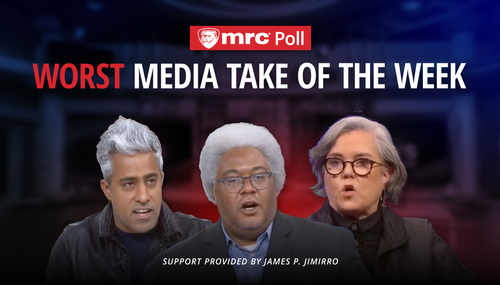It’s obvious things have gotten bad when President Joe Biden’s talking points are being undercut by one of his most ardent lapdog economists.
 Biden took to the press podium March 13 to congratulate himself on his administration’s wild efforts to secure the deposits at Silicon Valley Bank following its historic collapse. Biden attempted to dismiss any notion that what he was pushing was a government bailout. “No losses will be — and this is an important point — no losses will be borne by the taxpayers. Let me repeat that. No losses will be borne by the taxpayers,” Biden claimed.
Biden took to the press podium March 13 to congratulate himself on his administration’s wild efforts to secure the deposits at Silicon Valley Bank following its historic collapse. Biden attempted to dismiss any notion that what he was pushing was a government bailout. “No losses will be — and this is an important point — no losses will be borne by the taxpayers. Let me repeat that. No losses will be borne by the taxpayers,” Biden claimed.
Not so fast, said New York Times economics columnist Paul Krugman, aka Mr. “Transitory” inflation. “[Y]es, they were bailouts,” Krugman rebutted. “I wish the Biden administration weren’t trying to claim otherwise.”
Biden gaslighted that “the money will come from the fees that banks pay into the Deposit Insurance Fund.” But that doesn’t tell the whole story. Krugman surprisingly corrected the record, stating that while the Federal Deposit Insurance Corp. will cover the losses by imposing higher fees on the banks, “these fees will be passed on to the public, so taxpayers are de facto on the hook.” With all the chaos surrounding the bank failures that sent markets into a tailspin, it’s easy to see why Krugman blowing up Biden’s gaslighting would go largely unnoticed, especially since he typically is known to whip out the twirling baton for “Bidenomics.” [Emphasis added.]
But of course, Krugman’s common sense took a nosedive after undercutting Biden when he later asked: “But was [bailing out the banks] a bad decision?” Uh, what?
He then went on a tirade, flailing at some of the criticisms levied at SVB for its failures. One that Krugman couldn’t swallow was the allegation that SVB failed because of its fixation on environmental, social and governance standards (ESG). “[That’s] only marginally less ludicrous than claiming that wokeness somehow causes train derailments,” Krugman scoffed. “S.V.B. didn’t stand out from other banks in its concern for diversity, the environment and so on.”
But Krugman didn’t explain his rebuttal well. Perhaps that’s because he was wildly off the mark — kind of like his inflation calls.
The Wall Street Journal Editorial Board member Kimberley Strassel noted in an op-ed that SVB was “the lender of choice for tech dreamers.” She continued: “‘We serve those creating positive environmental change,’ SVB’s website brags, noting that the bank worked with some 1,550 companies in the ‘climate technology and sustainability sector,’” wrote Strassel.
But here was the kicker, per Strassel: “Most of these companies weren’t filling some vital market need.” One of the reasons why a bank hung up on climate activism would disregard risk like SVB is “Washington handouts, via President Biden’s [multitrillion-dollar] effort to engineer a climate industry that otherwise wouldn’t exist,” Strassel wrote.
To be clear, there were a myriad of factors that played into SVB’s collapse, such as the Federal Reserve’s ridiculous easy money policies. But Strassel’s analysis illustrates why Krugman just dropping the ESG component entirely as a legitimate factor is by his own words “ludicrous.”
Conservatives are under attack. Contact The New York Times at 800-698-4637 and demand it tell the truth about the government bailing out failed banks.





